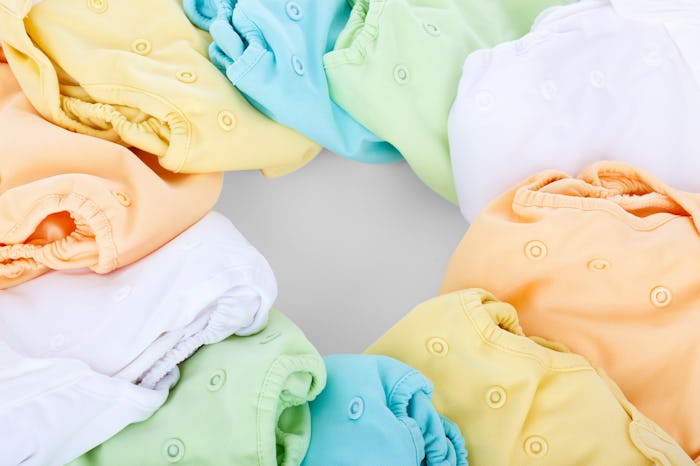You'd be hard pressed to find a parent alive who enjoys potty training. Some have kids who make an easier run of it than others, but generally it's one of the downers of parenting that you simply have to grit your teeth and do. Multiple approaches abound, but one of the most popular is known as the "three day potty training" method, and its adherents swear by it. So what is the three day potty training method, and does it actually work?
Although parents have probably been knocking out potty training over a weekend since the beginning of time, the method has risen in popularity with the 2014 release of an e-book by author Lora Jensen, 3 Day Potty Training: Start Friday, Done Sunday! In an interview with Parenting magazine, Jensen explained that her method is simple: when your child has indicated potty training readiness, stay home for three days straight with his bottom bare, offer him liquids constantly, put him on the potty every 15 minutes, don't sweat accidents, and reward him with something when he is successful.
If that sounds like one intense weekend, that's because it is. In an interview with Romper, Max Robinson of Precious Little Ones defends the efficiency of the method. "It might sound extreme, but this is why the three day potty training method works — because it's intense."
The element of this method that can make or break the experience for both parent and child is the positive reinforcement, according to Parent Consultant and Child Behaviorist Amanda Houle. Houle tells Romper that in her experience, most parents tend to "present power struggles and are not focusing on the positive and creating a fun environment while learning." According to Houle, most children who are developmentally ready to potty train actually want to succeed, but power struggles with parents can create stressful environments that cause the child to act out behaviorally.
Robinson agrees that positive reinforcement is key, and says parents should load up on a predetermined prize to dole out as a reward each time the child uses the potty over the three day span (stickers or M&Ms, for instance). Parents should expect tantrums and crying, according to Robinson, but if they maintain consistency, most children will be potty trained by the end of the three days, occasional accidents notwithstanding.
The three day method is probably not the right fit for every family, so consider whether a more laid-back, long term approach better suits your needs. But if you do decide to barrel through it, remember to stock up on all your necessities first, as you won't have time to leave the house. And by necessities, obviously, I mostly mean toilet paper and wine.
